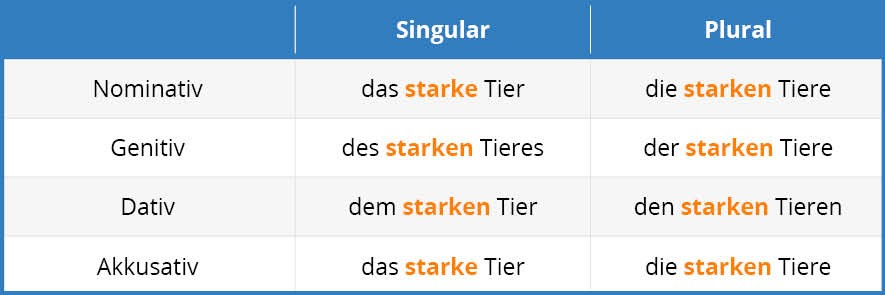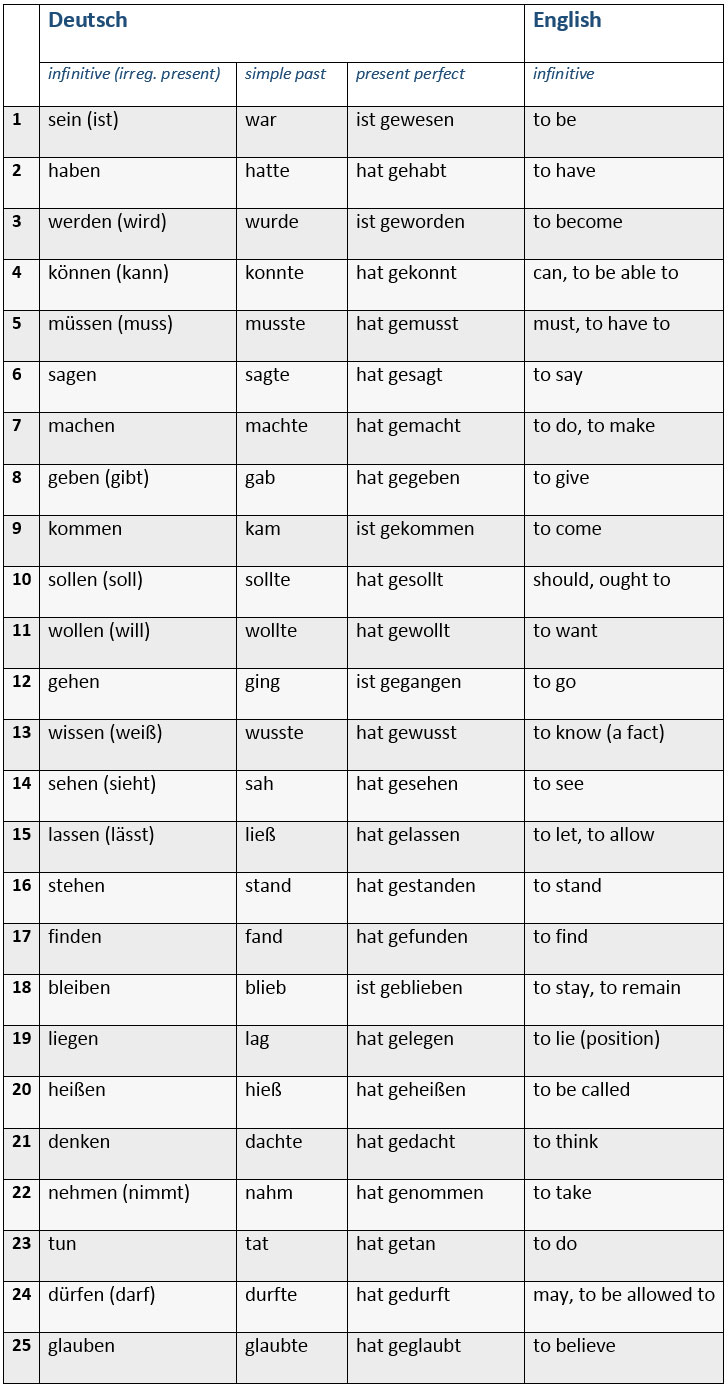
Good – better – best: „Miranda kann gut singen. These adjectives are always increased irregularly A special feature is an irregularly increased adjective. In the German course you will soon notice the many irregularities that the German language has to offer. A painted vase is “originell – originell er – am originell sten“. However, it does not apply to an ending on “-ell” and also not to adjectives whose ending on “-el” is emphasized. For example, someone is “edel – ed ler – am ed elsten”, or the bracelet made of gold is “teuer – teu rer – am teu ersten”. This is not the case in the superlative form. – With an unstressed ending on “-er””-el” or “-bel”, the “e” in the comparative form is omitted. Special features of adjective enhancementĪdjectives also have some peculiarities, which are based on the comparative as well as the superlative form: For example, the weather is “heiß – heißer – am heiß esten“. – In cases where adjectives end in “d/t” or “s/ß/x/z”, the superlative form is usually formed with “-est” at the end. For example, someone is “jung – jünger – am j üng sten“. – Monosyllabic adjectives with a, o or u in the vowel often form an “Umlaut”, also in the superlative. However, there are exceptions and peculiarities here as well, if you increase adjectives to the highest form. Slowly – the slowliest: „Bei einem Tierwettrennen war Tortuga die Schildkröte die langsamste. Keen – the keenest: „In seiner Klasse ist Max der Fleißigste von allen Schülern. Lovely – the loveliest: „Diese Kekse esse ich am lieb sten“. If “”am”” is used, the adjective is followed by an ending “-sten”.įast – the fastest: „Anne ist die schnellste Läuferin. The superlative form as the highest form of increase describes the maxim and is formed with “am”. The superlative – the highest form of increase of adjectives Healthy – healthy: „Es heißt, Gemüse aus dem Bauernhof sei gesünd er als Industriegemüse“. Short – shorter: „Nehmen wir doch diese Route! Der Weg durch die Autobahn ist kürz er als durch die Berge“! Tall – taller: „Ein Whiteboardstift ist größ er als ein Kugelschreiber“.Ĭoarse – coarser: „Meersalz für die Badewanne ist gröb er als Speisesalz“. Long – longer: „Von Wien aus ist der Weg nach Rumänien läng er als nach Ungarn“. If the positive basic form of the adjective is a monosyllabic with a, o or u, the ascending form is provided with a so called “Umlaut”. „Beim Discounter ist das Essen billig er als im kleinen Geschäft um die Ecke“. „Das Brot vom Bäcker ist frisch er als das Brot vom Supermarkt“. „Eine Komödie ist lustig er als ein Krimi“. We form the increase with “als” and add “-er” to the adjective at the end. In the comparative form the adjective is increased in the first form. The comparative – the first form of adjective enhancement Yara ist halb so technisch begabt wie Jovica.Īnne läuft halb so schnell wie Susi“. Jovica ist nicht so gut in Mathematik wie Yara. Stimmen Sie zu?Įin Besen macht nicht so gut sauber wie ein Staubsauger. Das mag ich genauso wenig wie meine Freundin.įreundschaft ist genauso wichtig wie Familie.Įin Samsung ist nicht so gut wie ein Iphone. Wer schlecht in der Schule ist muss sich doppelt so viel anstrengen wie jemand, der gute Noten hat. Markenjeans sind mindestens doppelt so teuer wie gewöhnliche. Mein kleiner Bruder ist nun fast so groß wie unser Vater.ĭiese Bildkopie ist fast so schön wie das Original.ĭie Altstadt von Wien ist fast so schön wie Venedig.

„Kommunikation ist fast so wichtig wie das, was Sie sagen.

Here one uses comparisons consisting of a basic form of an adjective and “wie”.


with “ fast so … wie, doppelt so … wie, genauso … wie, nicht so … wie, halb so … wie”, etc. This is the form in which the adjective is compared, e.g. The positive form – the basic form of adjectives Maria läuft am Schnellsten.” That’s the increase in adjectives. When do we use which word form when we increase an adjective? If we compare Anne with Susi, for example we say: “Anne läuft schneller als Susi. There are three levels of enhancem ent: the positive form, the comparative form and the superlative form. How do we do that when we compare two things? Your German grammar journey starts here… Such as when we want to increase adjectives. Email Comparison of adjectives – German Grammar rules


 0 kommentar(er)
0 kommentar(er)
